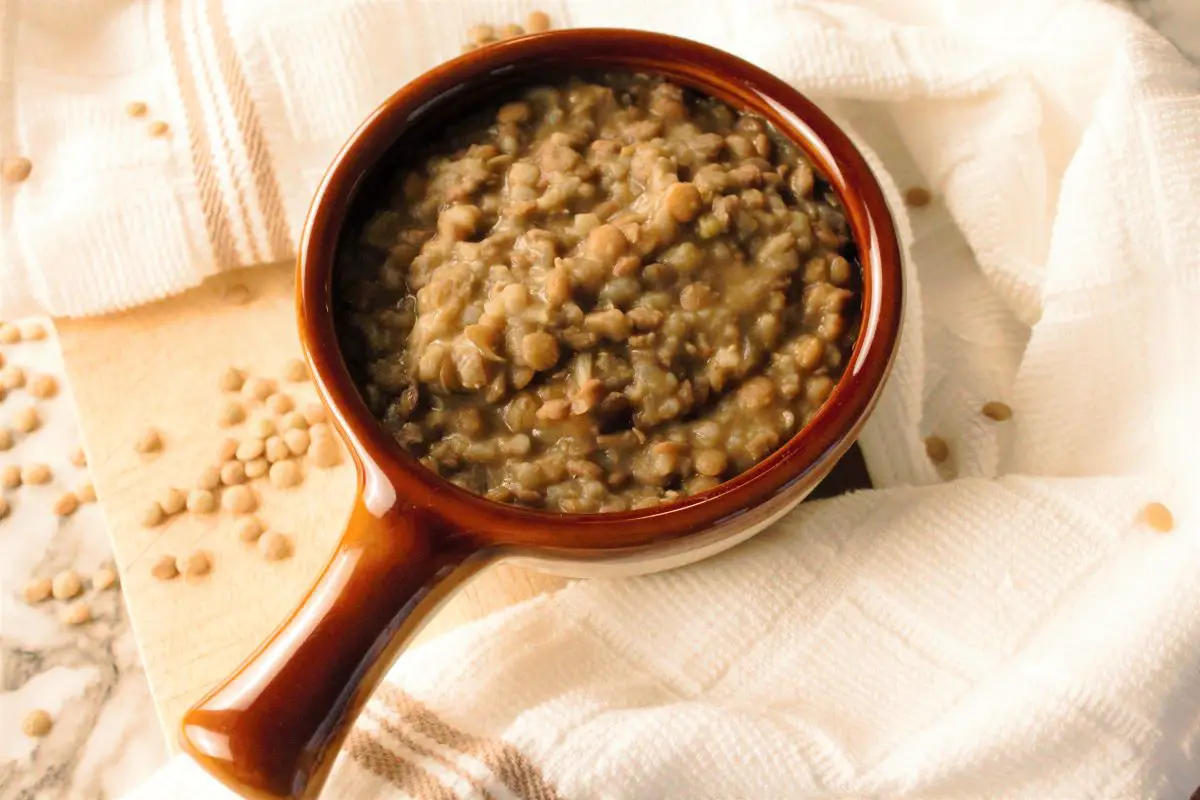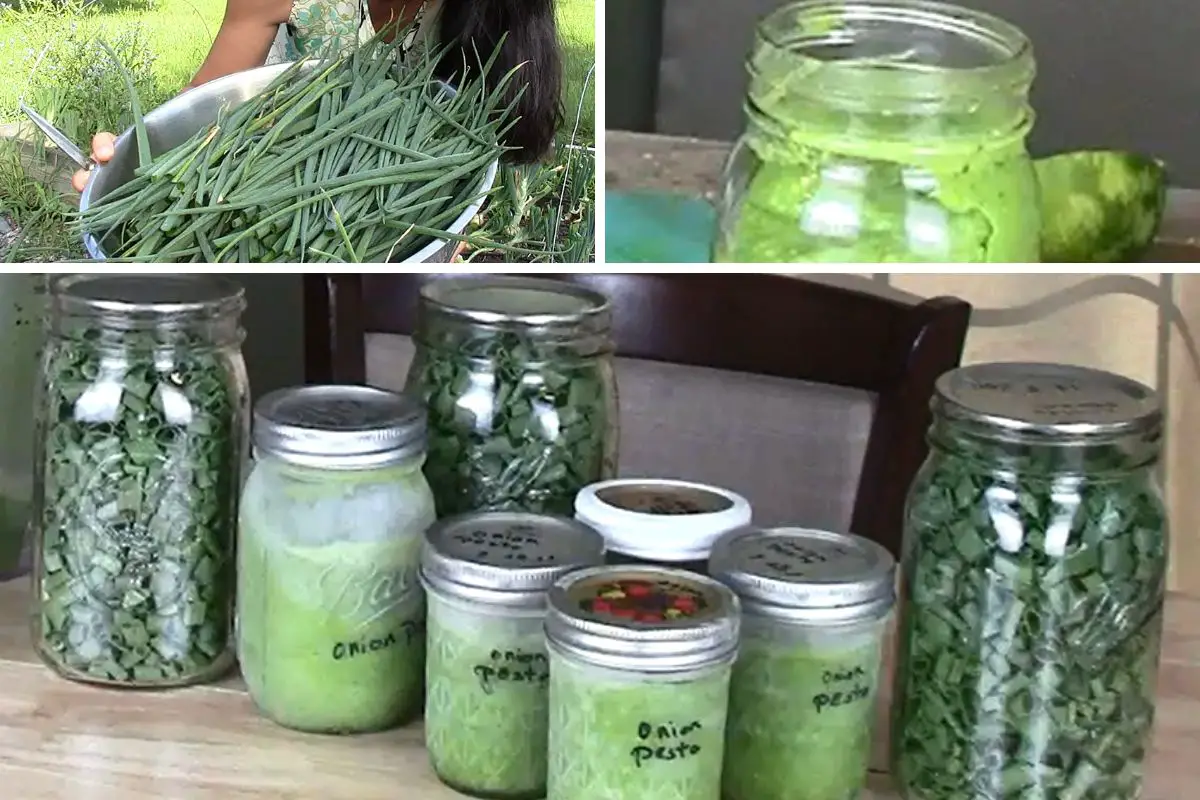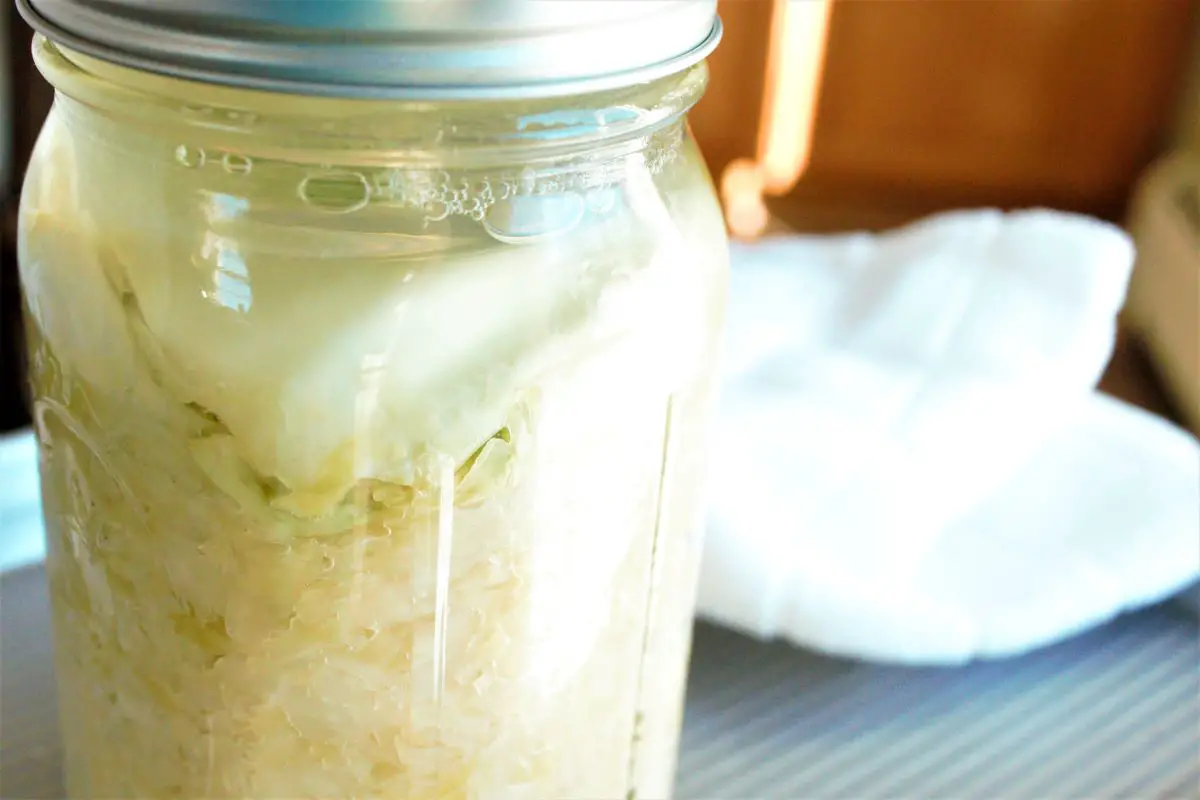This lentil soup recipe is thousands of years old. It is even mentioned in the Bible, the time when Esau sold his birthright to his brother Jacob for a bowl of lentil soup. Even though it is not the most famous dish in Lebanese cuisine, it has been famous in its own right all throughout history. I hope you will like it as much as Esau did, but don’t sell your birthright!
Jump to RecipeINGREDIENTS FOR MAKING LENTIL SOUP
- Brown lentils or green. I personally prefer the brown ones. I tend to like their flavor better
- Extra virgin olive oil
- A large onion diced into small pieces
- Long grain rice to help thicken the soup a bit and give it an extra creamy texture.
- Salt or to taste
- Boiling water
UTENSILS
- Measuring cups
- Measuring spoons
- Cutting board
- Medium bowl
- Large Fine sieve
- Medium stockpot
- Wooden spoon
CAN I ADD OTHER INGREDIENTS TO MY SOUP
The short answer to that is yes, you can add almost any ingredient to your soup.
Here is the long answer.
Every ingredient has a different flavor profile, chemical structure, texture, and cooking time. So when you decide to add a new ingredient to your lentil soup, these are things that you should be paying attention to.
Flavor profile
The first thing I tend to think about is the flavor profile. For example, carrots have a hint of sweetness to them. When they get cooked, they get even sweeter.
Even though I like carrots, If I do not want my soup to take on a hint of sweetness, I will not add carrots to it. I would probably choose something else. Maybe, celery, swiss chard, or anything with that fresh and crisp flavor profile.
Another type of ingredients that could drastically change your flavor profile would be meats. The flavor and heartiness of your lentil soup is going to change depending on which type of meat you choose.
For example, chicken is going to give you a lighter flavor profile in both the depth of flavor and heartiness. While beef is going to give the lentil soup a slightly heavier flavor profile, and more hearty.
The ingredients you add should also vary depending on the type of meat you add. So here is my advise. Experiment. Find out what you like in your soup, and what you don’t like. Try adding one thing at a time and removing one thing at a time. But first of all, try this recipe as is because I bet you are gonna love it.
Texture and Cooking Time
When adding new ingredients to your lentil soup, consider how long should these ingredients be cooked for.
For example, if you cook carrots for too long, they will lose both their texture and flavor. Sure, they would have lent their flavor to the dish, but if you care about texture, you might want to add them close to the last 30 minutes of cooking time.
On the opposite hand, if you cook beef for a short time, you are going to be chewing on your lentil soup for ages. So you might want to consider putting that in first, maybe while you’re sautéing the onions.
Chemical Structure
I am not going to try to be a scientist here. But here is the point. Different ingredients have different chemical structures.
I am not trying to scare you here, but you do have to take the chemical structure into consideration.
What am I talking about?
For example, If you add certain ingredients, it might interfere with the creaminess of your soup, or how well your lentils would cook.
For example, if you add in tomatoes at the beginning of the cooking process before the beans have had the chance to be cooked, it will stop your beans from being cooked properly.
Tomatoes are slightly acidic. That acidity is what causes the beans to toughen up. So if you want a creamy lentil soup, either don’t add tomatoes, or only add them once the lentils have reached the consistency that you like.
WHY DOES LENTIL SOUP HAVE TO BE COOKED FOR SO LONG!
This lentil soup has to be cooked for so long. But you don’t have to.
What do I mean by that?
Here is what I mean. Cooking lentil soup low and slow will give it an amazingly creamy texture that you would fall in love with.
However, what if you do not like that creamy texture? The answer is simple. Cook the lentils for as long as they need to be cooked in order to achieve the texture that you want them to be at.
Some people may cook their lentil soup for 30 minutes or 1 hour. That’s ok, as long as you like that.
But if you are looking for that super creamy texture, first you have to soak your lentils, and second you have to cook them low and slow.
WHY ADDING BOILING WATER TO LENTIL SOUP IS IMPORTANT
Aha! You asked the right question, and I am going to give you the right answer.
There is nothing wrong with adding cold water to your soup, or maybe there is.
What Happens When You Add Cold Water to Lentil Soup
Sure you can add cold tap water, or filtered water to your soup, but here is what happens. When you add cold water to your soup, you are efficiently halting the cooking process. Imagine if you were blanching something, and then you immediately put it under cold water. You would have effectively stopped the cooking process.
When you stop the cooking process, you are also causing those starches to shrink, and run back to their place. This will make it more difficult for you to achieve the texture that you are looking for. Unless you are looking for whole lentils, then go for it.
What Happens When You Add Hot Water To Soup
When you add hot water, you are effectively keeping the soup at the same temperature. There would be no fluctuation of temperature, and the beans should continue to cook and thicken. Thus, you will achieve the texture that you are after much quicker than if you would add cold water.
HOW TO SERVE LENTIL SOUP
You can serve this dish with Gluten Free Roti, pickles, cucumbers, onions, radishes, or any other type of vegetable that you might like.
You could also add in a bit of lemon juice or vinegar to your bowl. I personally prefer it as is. I just add a whole lot more salt to my bowl (because I love salt) and I prefer to eat it with Lebanese pickles, cucumbers, and onions.
LOOKING FOR MORE RECIPES? TRY THESE!
Beef Carnitas That Will Knock Your Socks Off
Mediterranean Okra Stew With Beef
Shish Tawook Mediterranean Chicken Shish Kabob Recipe

Lentil Soup
Ingredients
Equipment
Method
- Place the lentils in a medium bowl. Rinse and drain them using a strainer. Do this about 3 times or until the lentils are thoroughly cleaned. Allow the lentils to soak in cold water for 30 minutes to 1 hour.
- Place the 2 or 3 tablespoons of olive oil (depending on how much you prefer to use) into the stockpot. Turn the stove onto medium heat and place the diced onions into the pot with the olive oil. Stir frequently to avoid the onions from burning.
- Once the onions have become translucent and golden brown, drain the lentils and add them into the stockpot with the onions. Stir fry for 2 to 3 minutes.
- Add in 6 cups of boiling water into the pot. Turn the heat on high. Cover the pot and bring the soup to a boil. Reduce heat to medium-low and allow to cook for 30 minutes, stirring occasionally.
- After the 30 minutes have passed, check to make sure that the water is not completely evaporated. If most of the water has evaporated, add in the remaining 3 cups of boiling water. Stir, and allow to cook for one and a half hour stirring occasionally. Check on the soup every 30 minutes to make sure that the water has not completely evaporated. You want to achieve a porridge consistency. So if you need more water, don’t be afraid to add more!
- After the lentils are fully cooked and have achieved the desired consistency, add in the 1 tablespoon of salt (or to taste) and stir.
- You can serve this dish with rice bread, pickles, cucumbers, onions, radishes, or any other type of vegetable that you might like. You could also add in a bit of lemon juice or vinegar to your bowl. I personally prefer it as is. I just add a whole lot more salt to my bowl (because I love salt) and I prefer to eat it with Lebanese pickles, cucumbers, and onions.
Notes
Disclosure: Some of the links in this post are “affiliate links”. This means if you click on a link and purchase the item, I will get an affiliate commission. It will not cost you any extra money, but it will help me pay for this website, and it will help me to keep providing you with helpful articles such as this one. I only post links to products that I personally use and love, or to products that I wish I could have, and that could be of value to you. The information that I provide you with, my blog, videos, and many resources are free.





Be the first to reply